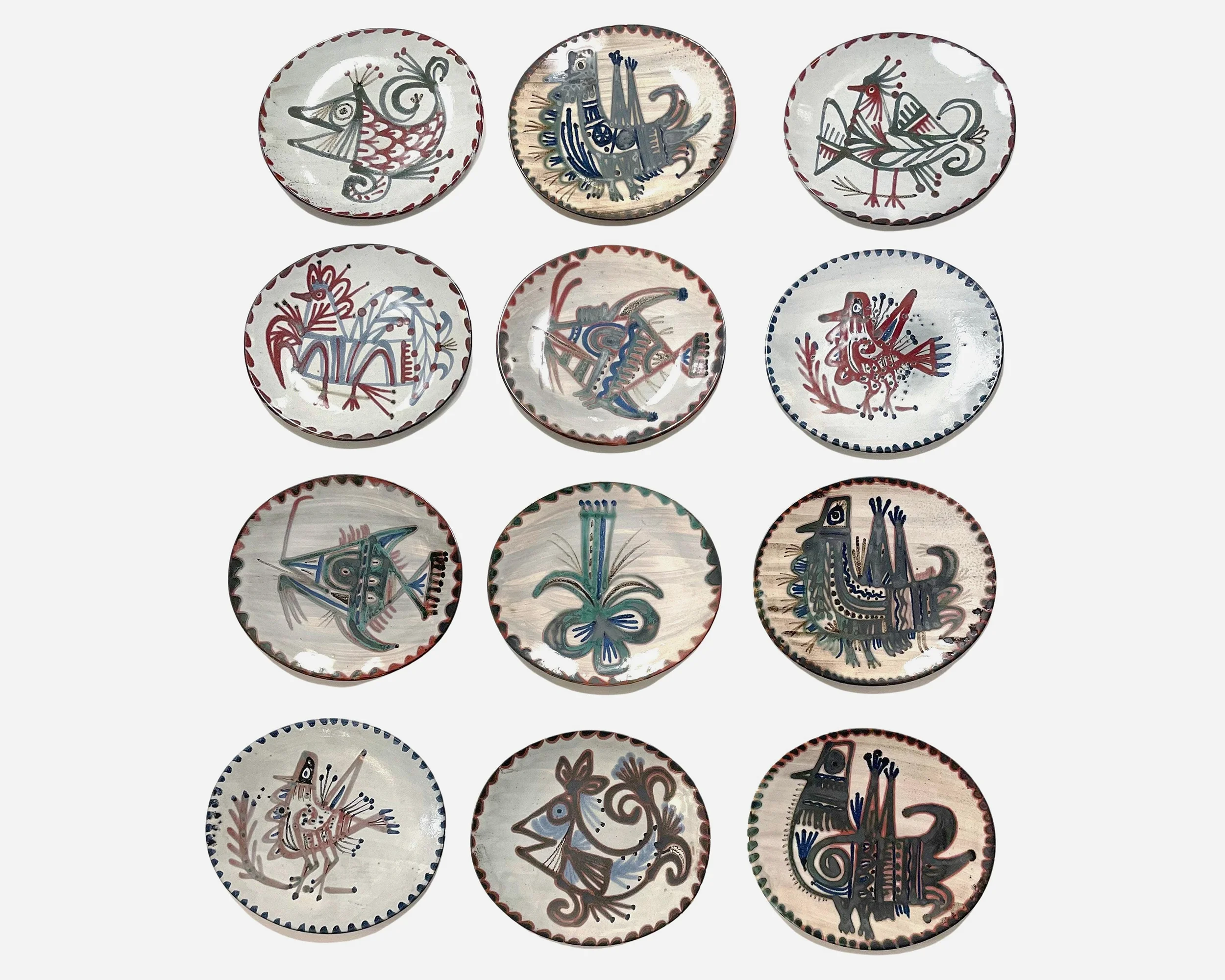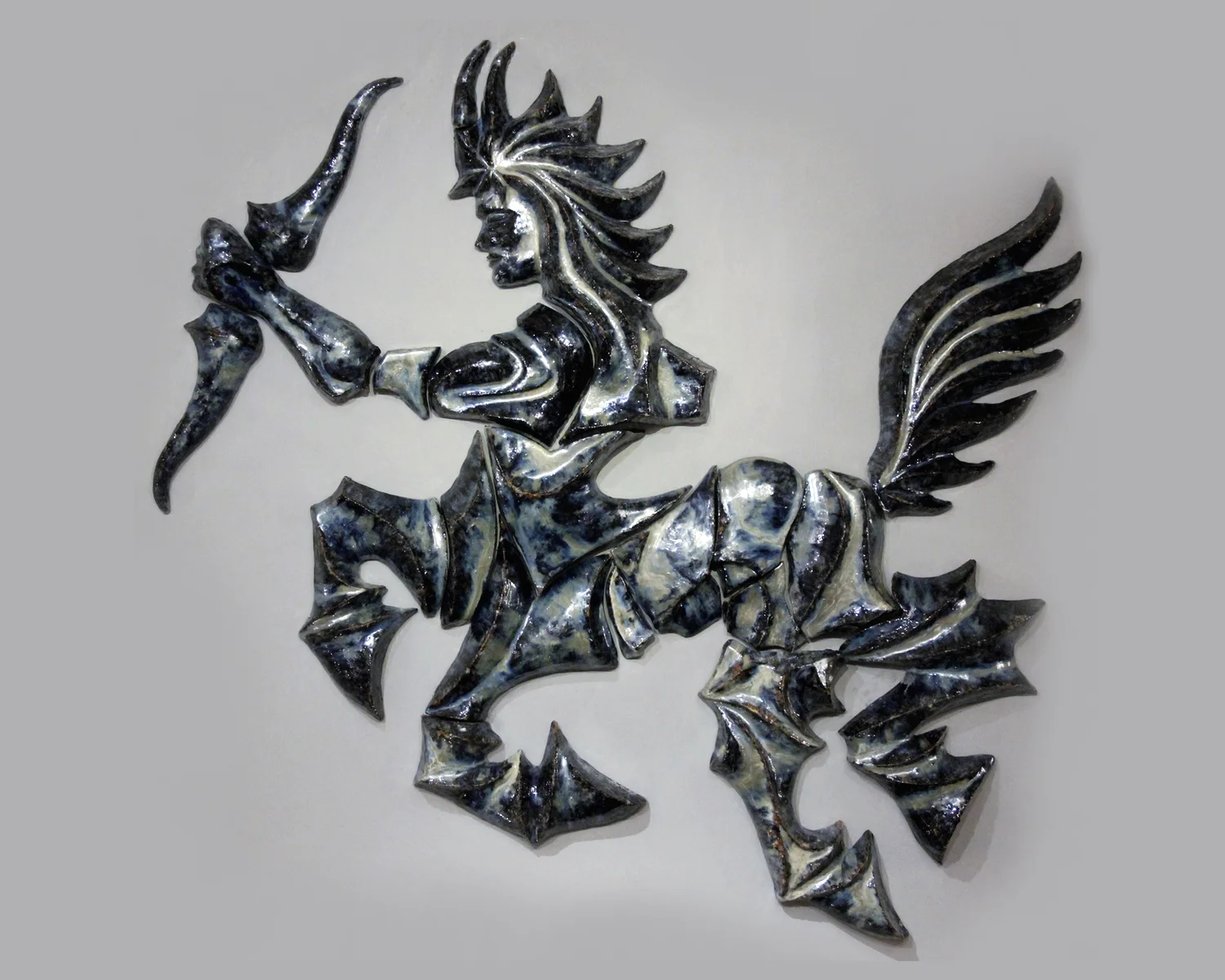
Twelve plates decorated with fantastic birds and fish, by Gustave Reynaud and Jean Derval, Atelier Le Mûrier
Vallauris, France, 1960

“Centaur” wall ceramic, attributed to Jean Derval
France, circa 1950
Biography
Jean Derval, France (1925 – 2010)
Born March 2, 1925 in Chatillon sur Indre, Jean Derval is a French ceramist considered by his peers to be a great humanist ceramist.
He first received an artistic education as a graphic designer and poster designer at the School of Applied Arts on rue Dupetit-Thouars in Paris. His vocation for ceramics came to him by chance when he created stoneware services for the Christofle goldsmith house.
In 1945, during a stay in Saint Amand en Puisaye, he learned the trade of ceramist in the Maubrou-Pigaglio workshop. In this workshop, with Camille Gendras, turner at Pigaglio, he learned about turning and other ceramic techniques.
In 1947, Jean Derval joined Robert Picault and Roger Capron in Vallauris where they created a pottery workshop the previous year. The elegant world of amateurs and artists met at this time on the Côte d’Azur around Picasso. Jean Derval entered the famous Madoura workshop in 1949, where he worked alongside the Andalusian master for two years.
In 1951, he founded his own establishment, Le Portail. Instead of creating a real factory, he chose the path of “unique pieces”. Derval offers a repertoire of domestic pottery, essentially anthropomorphic and zoomorphic inspired, reinterpreted based on the lessons of cubism and abstraction. His Christian fervor also led him to deal with religious subjects such as representations of the Virgin and saints. Finally, its Mediterranean roots leave an important place for the mythology of ancient Greece.
The end of the 1960s was marked by a shift in taste towards austere colored stoneware, at the expense of the colored earthenware favored by Jean Derval. He then turned towards architectural ceramics with the vision of a sculptor rather than a potter.
He died on February 19, 2010 in Vallauris.